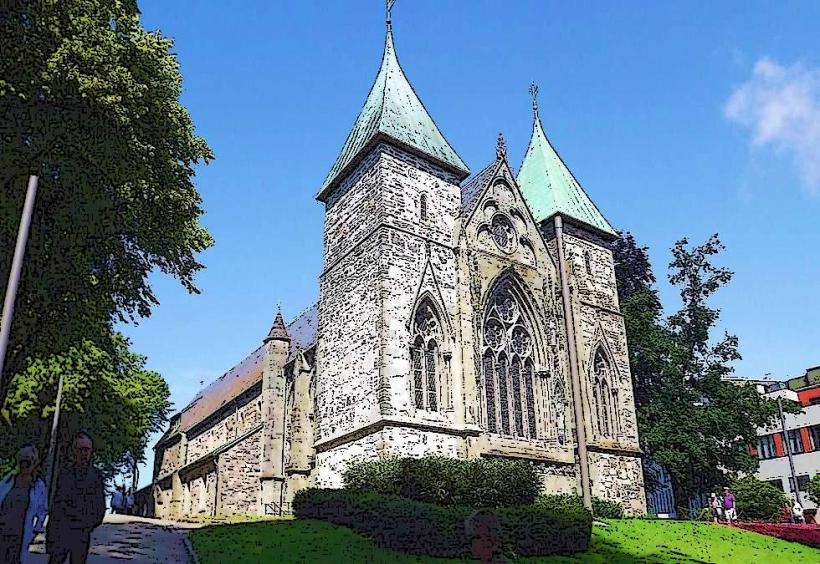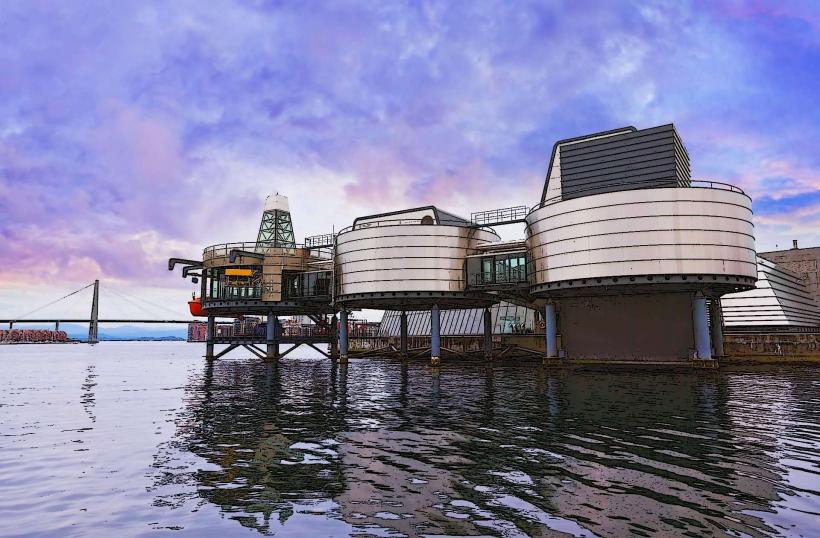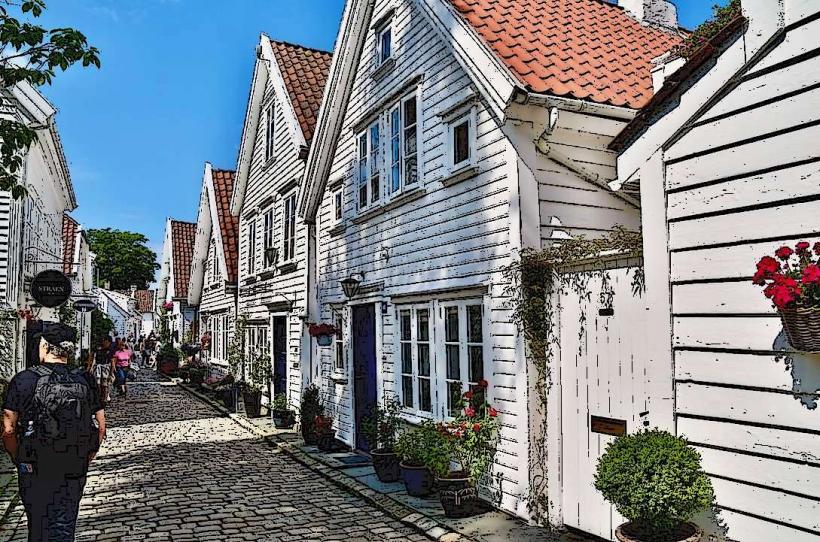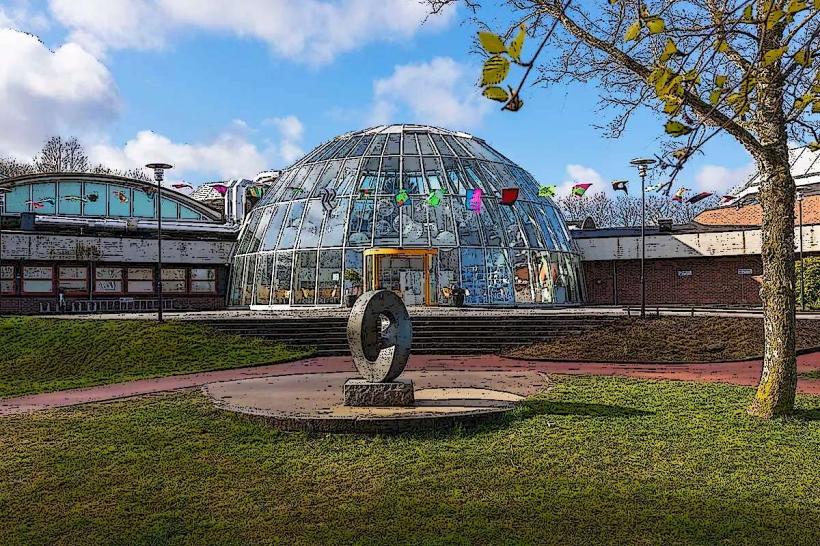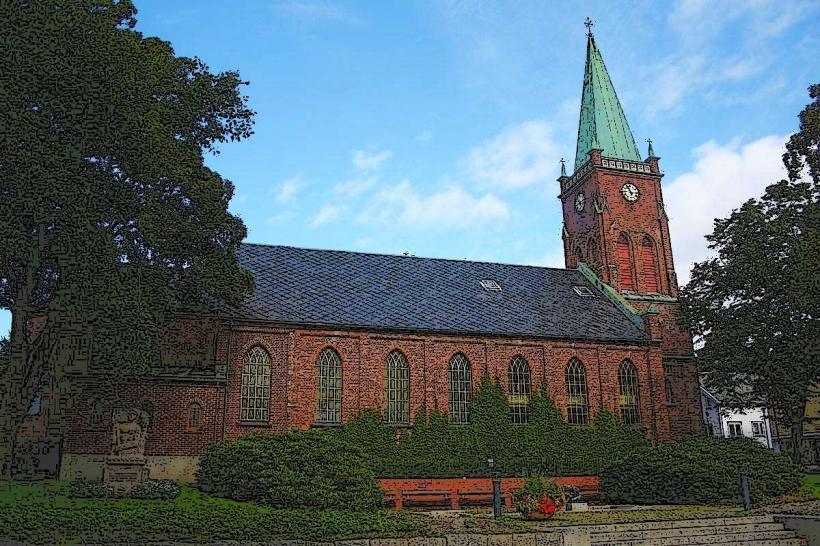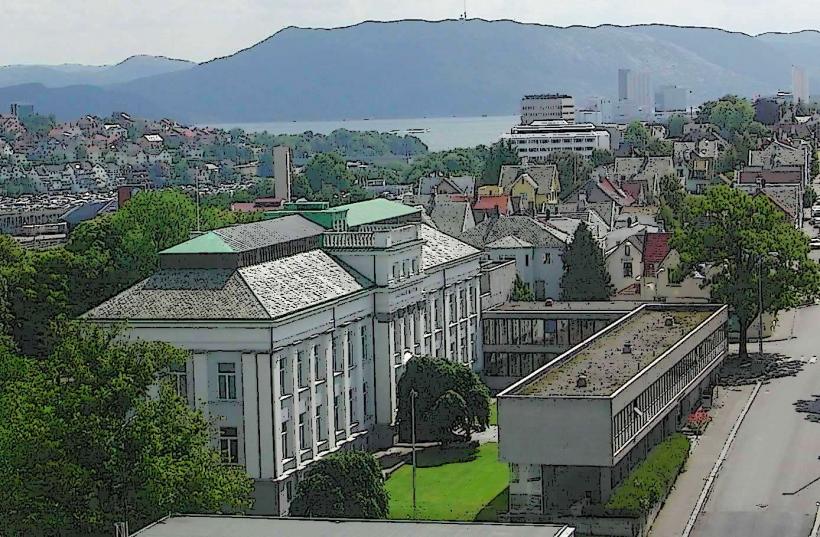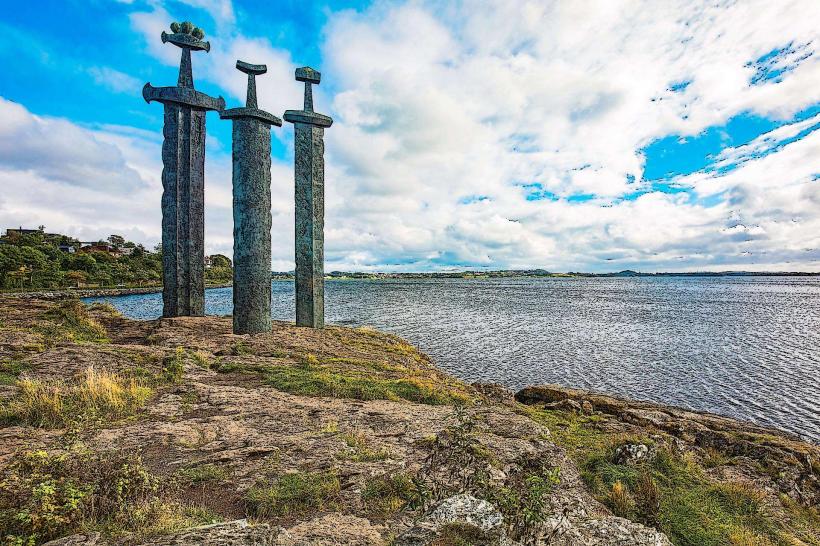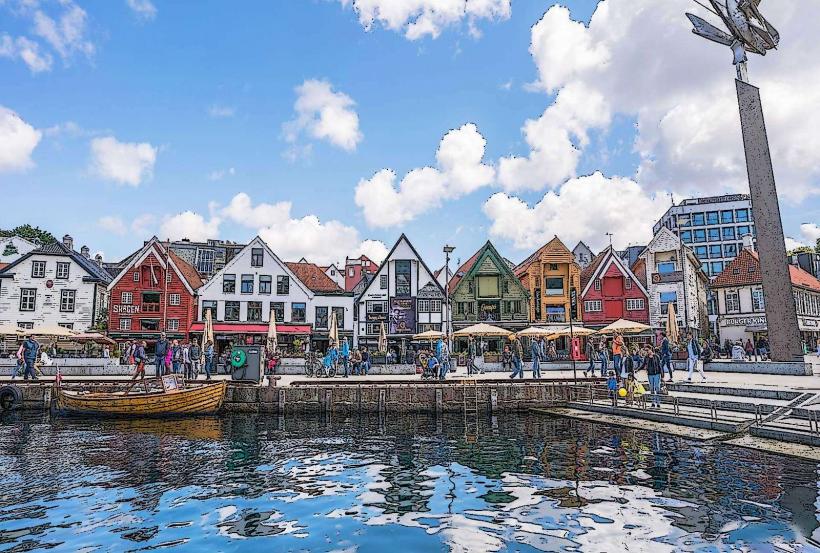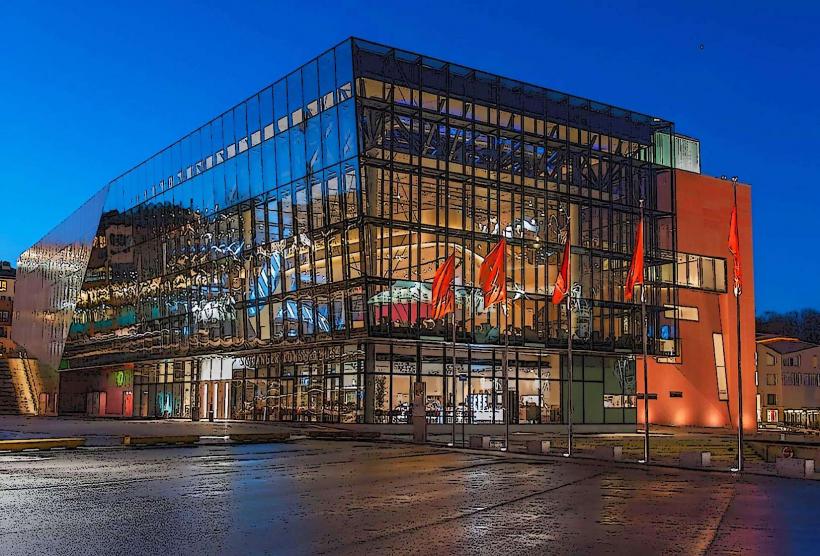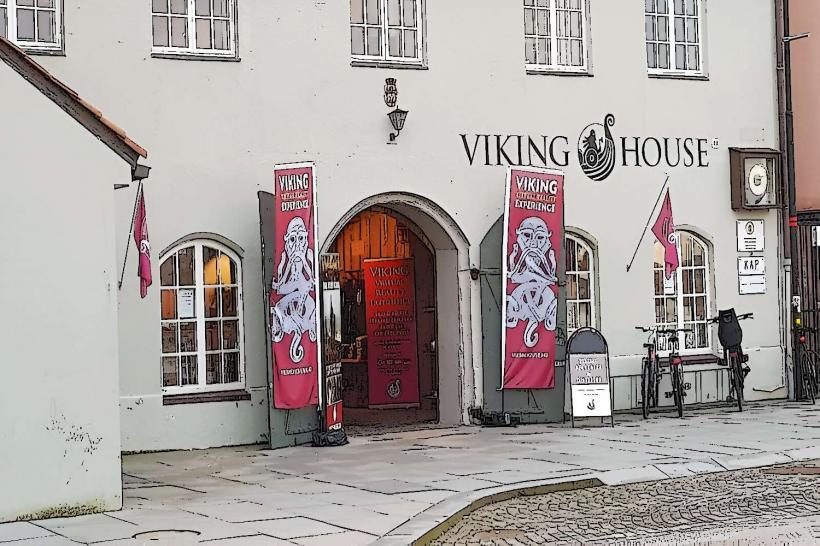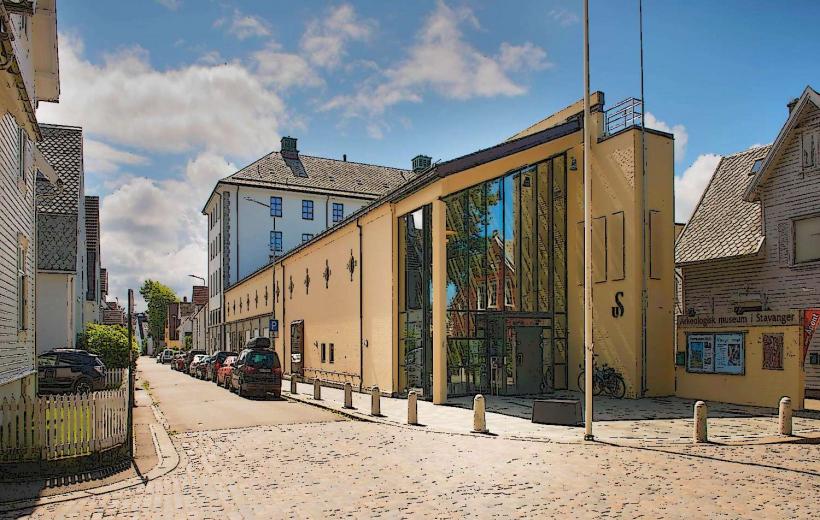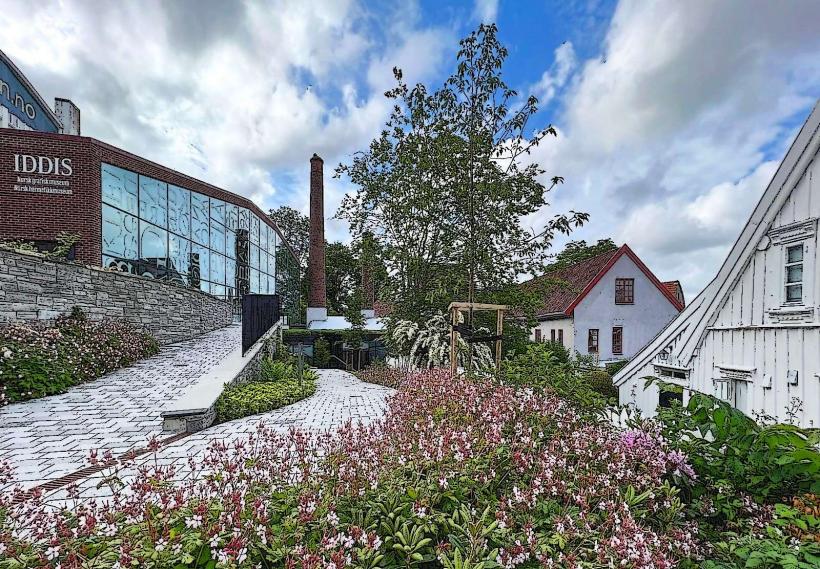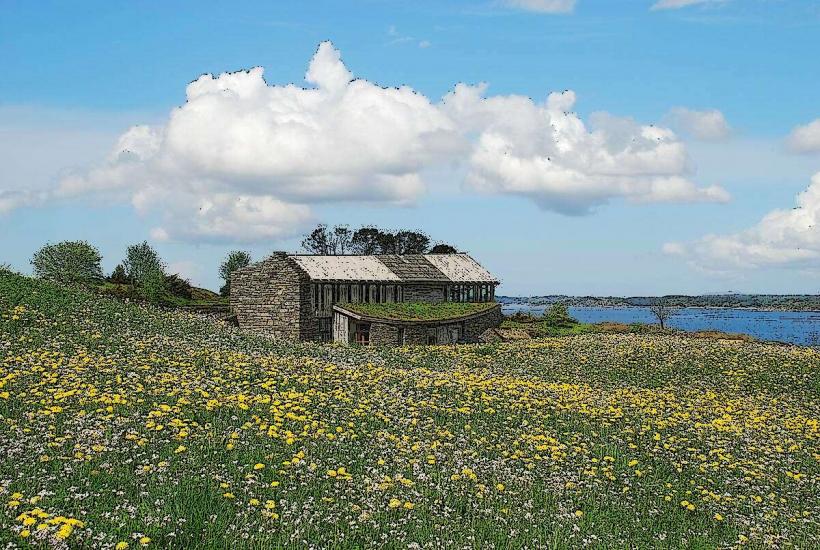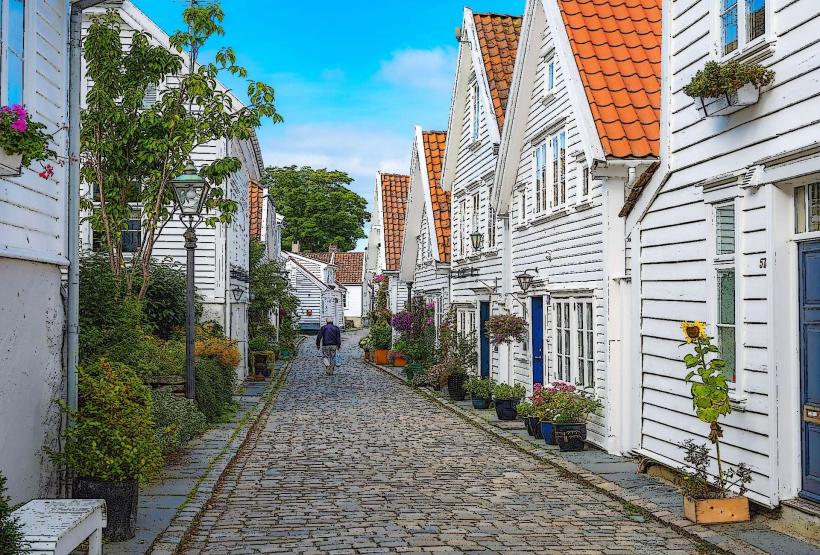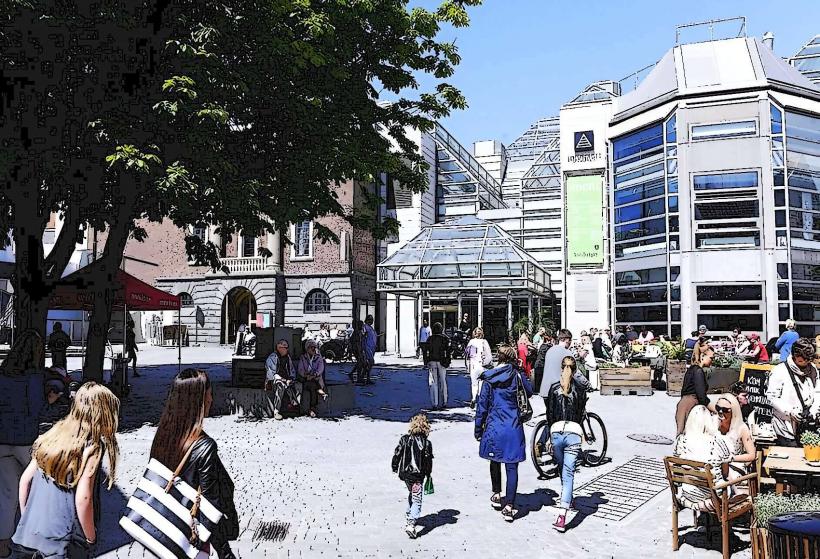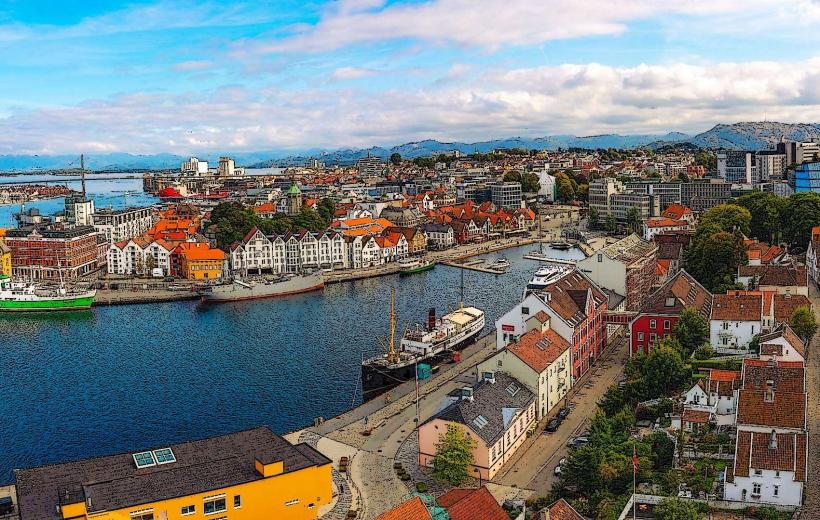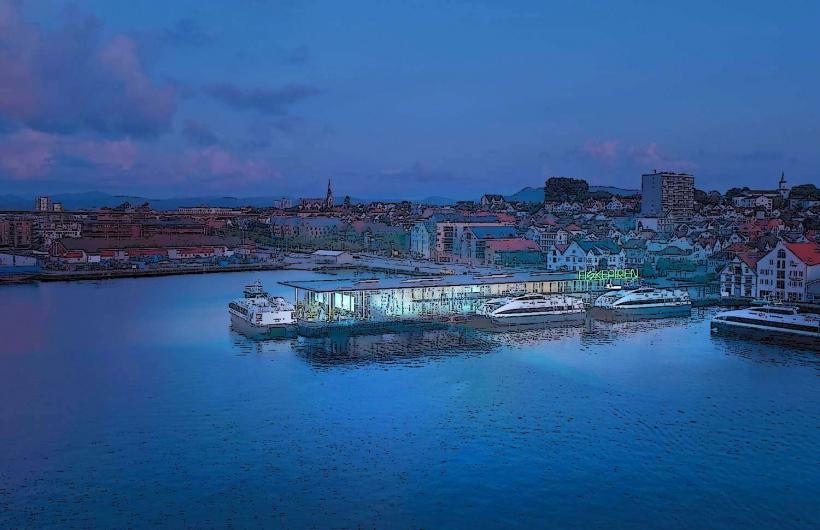Information
Landmark: Stavanger Maritime MuseumCity: Stavanger
Country: Norway
Continent: Europe
Stavanger Maritime Museum, Stavanger, Norway, Europe
The Stavanger Maritime Museum is a cultural institution dedicated to Norway's maritime history and the city's seafaring heritage. It is located in the heart of Stavanger, Norway, within the historic warehouse district of Vågen.
Visual Characteristics
The museum occupies several former warehouses and merchant houses, primarily constructed from wood. The buildings feature traditional Norwegian architectural styles, characterized by their narrow, gabled facades and often painted in muted colors such as white, yellow, or red ochre. The structures are typically two to three stories high, reflecting their original commercial purpose along the harbor.
Location & Access Logistics
The museum is situated at Strandkaien 22, approximately 0.5 kilometers from Stavanger city center. Public parking is available at the Valberg car park, located 0.3km east, or the Jernbanen car park, 0.7km south. Several local bus lines, including routes 1, 2, and 3, stop at the Stavanger Sentrum terminal, which is a 5-minute walk from the museum. The museum is directly accessible from the Vågen harbor area.
Historical & Ecological Origin
The museum itself was established in 1979, but it is housed in buildings dating back to the late 18th and early 19th centuries. These structures originally served as warehouses and merchant residences, crucial for Stavanger's trade and shipping industry, particularly during the herring boom. The museum preserves and showcases this historical context, focusing on the city's evolution from a fishing and shipping hub to an oil capital.
Key Highlights & Activities
Exhibitions detail the history of shipping, fishing, and canning industries in Stavanger. Visitors can explore a reconstructed general store from the 1950s and a merchant's apartment. The museum also features a collection of historic boats and maritime artifacts. Guided tours are available on select days, and interactive displays explain navigation and seafaring life.
Infrastructure & Amenities
Restrooms are available on-site. The museum buildings offer limited natural shade, but indoor climate control is maintained. Cell phone signal (4G/5G) is generally strong throughout the premises. A museum shop sells books and souvenirs. Several cafes and restaurants are located directly outside the museum along the Vågen harbor.
Best Time to Visit
The museum is generally less crowded during weekday mornings, shortly after opening. The best months for visiting Stavanger, weather-wise, are June through August, offering mild temperatures for exploring the city before or after the museum visit. Photography inside is permitted without flash. No specific tide requirements affect the museum visit.
Facts & Legends
One notable artifact in the museum's collection is a fully preserved 19th-century sailing vessel, the Anna af Sand, which provides a tangible link to Stavanger's past as a bustling port. A lesser-known fact is that the museum's location in the old warehouse district was once the economic heart of Stavanger, where merchants conducted business directly from their waterfront properties, often using the upper floors for living and lower floors for storage.
Nearby Landmarks
- Gamle Stavanger (Old Stavanger): 0.2km West
- Stavanger Cathedral: 0.4km South
- Norwegian Canning Museum: 0.6km West
- Valbergtårnet (Valberg Tower): 0.3km East

